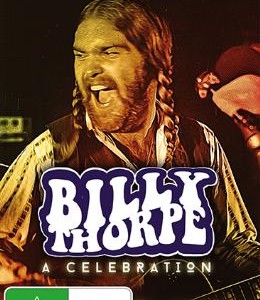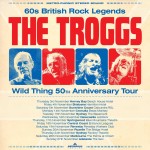Still Rocking: Alice Cooper Age, Career, and Other Facts
You can never be too old to rock’n’roll, and when it comes to Alice Cooper, age is really just a number. The rock legend is living proof that the show doesn’t stop as the years roll on.
Join us at Jukebox Saturday Night as we dig deep into the iconic rocker.
The birth of a legend
Born in Michigan, USA, on February 4, 1948, Vincent Furnier (before he was Alice Cooper) swapped the bustling Detroit scene for the desert landscapes of Phoenix, setting the stage for his rock and roll destiny. While attending Cortez High School, he formed The Earwigs, a Beatles parody band that morphed into The Spiders, winning fans with their wigs and antics at a school talent show.
By 1966, they were a local hit, rocking bars and recording their first single, ‘Don’t Blow Your Mind’ – a true teenage dream come true. The Spiders morphed into Nazz, but when they found out Todd Rundgren already had a band by that name, they switched to the band name Alice Cooper in 1968.
They moved to Los Angeles and, after a chaotic 7.00 a.m. audition, Frank Zappa signed them. Their debut album, ‘Pretties for You’, might have been considered a flop, but it laid the groundwork for their future as shock rock pioneers.
‘I’m Eighteen’ and breaking through at 23
At Alice Cooper age, he delivered the youth anthem, ‘I’m Eighteen’. Released in November 1970, this track climbed to No. 21 on the Billboard charts. This success not only marked Alice Cooper’s first major hit but also convinced Warner Bros. of the band’s commercial potential, paving the way for their breakthrough album, ‘Love It to Death’.
‘School’s Out’: rock stardom in the early 70s
By the early 1970s, he had already released chart-toppers like ‘School’s Out’ – his fifth studio album that featured the rebellious youth anthem of the same name.
Following up in 1973, ‘Billion Dollar Babies’ cemented his status as a rock legend, with contributions from Michael Bruce and Dennis Dunaway, showcasing his knack for blending hard rock with theatrical flair.
The band’s impact on rock and metal is profound, especially at Alice Cooper age when he pioneered the use of theatrics in rock. This revolutionised live performances, setting a new standard for stage presence in the genre.
‘Welcome to My Nightmare’: going solo at 30
Alice Cooper’s solo career exploded onto the scene with ‘Welcome to My Nightmare’ in March 1975, channelling the same theatrical energy that made the likes of Night Ranger band members iconic. This album blended hard rock, cabaret, and horror, cementing Cooper’s status as a shock rock innovator.
It inspired one of the most extravagant tours ever, featuring wild props like giant baby dolls and spiders. Managed by Shep Gordon, the tour’s dramatic flair even spun off into an Emmy Award-winning TV special, ‘Alice Cooper: The Nightmare’.
Despite his skyrocketing success, Cooper battled personal demons, primarily alcoholism. By the late 1970s, his drinking had escalated, heavily affecting his life and career. He entered rehab in the early 1980s, a move that not only marked his path to recovery but also influenced his later work.
‘Poison’ returns: the comeback king at 41
Alice Cooper’s solo career hit a high note in the late 1980s with the release of ‘Trash’ – a roaring comeback marked by his newfound sobriety. The lead single, ‘Poison’, not only rekindled his chart magic, becoming his first top ten hit since 1977, but also sold over two million copies globally.
This album kicked off a series of successes, and at Alice Cooper age, he continued to churn out hit after hit, embarking on extensive tours that reinforced his status as an undying rock icon.
Rockin’ all night: the 50s and beyond
In 2011, Alice Cooper smashed into the Rock and Roll Hall of Fame, an honour that wasn’t just any accolade – it was a nod to his role in sculpting the rock landscape.
Alice Cooper’s reach extends beyond music; he’s also a familiar face in films like ‘Wayne’s World’ and charms listeners on his radio show ‘Nights with Alice Cooper’, where his rock knowledge and magnetic personality really shined.
In 2012, Cooper teamed up with Johnny Depp and Joe Perry to form the supergroup Hollywood Vampires, a nod to his legendary 1970s drinking club with rock icons like John Lennon and Keith Moon.
‘No More Mr. Nice Guy’: still shockin’ at 75
Alice Cooper continues to rock hard well into his 70s, thrilling fans across generations with his 2024 Australian tour. With a career spanning over 50 years and still counting at Alice Cooper age, his legacy in rock music is rock-solid.
Frequently Asked Questions (FAQ)
Who is Alice Cooper’s wife?
Alice Cooper has been married to Sheryl Goddard since 1976. Sheryl, a skilled dancer and choreographer, dazzled in Alice’s late 70s stage shows.
What is Alice Cooper’s original name?
The rock legend was born Vincent Damon Furnier before he officially changed his name to Alice Cooper in 1973.
When did Alice Cooper go clean?
Alice Cooper kicked alcohol to the curb in the early 1980s after years of struggle. His push to quit was fueled by health scares and a drive to boost his personal and professional life.
Rockin’ the airwaves with Jukebox Saturday Night
Jukebox Saturday Night began as a passion project by Ken Sparkes and his mates, celebrating all things rock ‘n’ roll, including the electrifying sounds of forgotten 70s bands and seventies jukebox classics. With dedication and heart, Ken kept the music alive on TV, creating a loyal fan base. Though Ken passed away in 2016, his nephew and son carry on the legacy, ensuring the show keeps rocking.
We keep it real – authentic, passionate, and always approachable. Our mix of tradition and innovation ensures clear, engaging, and fun communication. We aim to connect with music lovers – those who treasure Beatles memorabilia and love the classics by Wham members – by making every episode feel like a chat with friends.
No need to wonder about who invented the moonwalk – tune into Jukebox Saturday Night and learn more about your favourite artists.




